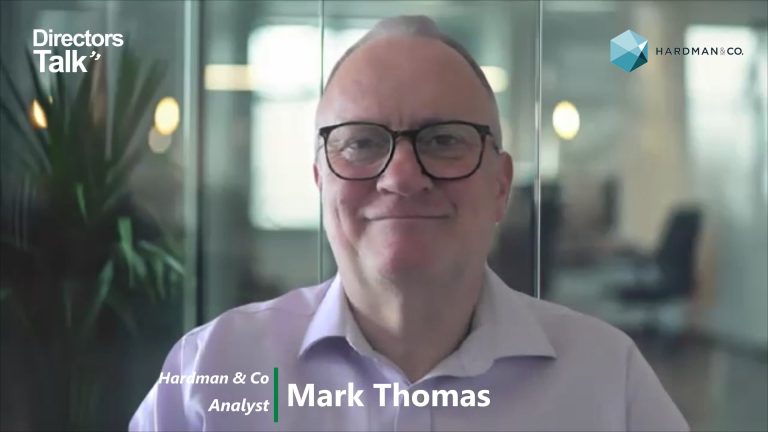Oakley Capital Investments Limited (LON:OCI) is the topic of conversation when Hardman and Co’s Financial Analyst Mark Thomas caught up with DirectorsTalk for an exclusive interview.
Q1: Your recent report on Oakley Capital Investments sits behind a disclaimer. What can you tell us about that?
A1: It is just the standard disclaimer that many investment companies have. In essence, for regulatory reasons, there are some countries (like the US) where the report should not be read. In the UK, because private equity is not a simple asset class, it should only be looked at by professional / qualified investors. P2 of the report gives all the details.
Q2: Can you give us your brief summary of the 67-page report?
A2: The company (OCI) has generated market-beating returns from its concentrated, three-sector-focused portfolio of private equity (PE) investments via Oakley Capital Investments PE funds. The company has a proven model for sourcing investments, and an excellent track record of identifying resilient value opportunities and delivering superior returns.
Looking at that in more detail over 10 years, OCI has delivered a 156% total NAV return. Its investments in the company’s private equity (PE) funds have delivered total realised returns of 3.5x money multiple and 48% gross IRR to date since inception. The net performance is reflected in its NAV growth. They have unique advantages in origination, management, and complex-deal structuring.
Portfolio companies benefit from improved operational efficiency, strategic development, ratings, and governance. OCI’s end-June cash was £261m (59% of market cap.) – well positioned to take market opportunities. The 1H’20 NAV total return was 4%, despite COVID-19. The 35% NAV discount appears anomalous with performance.
Q3: What can you tell us about its strategy?
A3: OCI has outperformed public markets, with value in the underlying companies being created in six ways: i) committed funding for strategic development, including acquisitions; ii) delivering operational improvements to grow revenue, manage costs and optimise financing (OCI observes the latter is not a key driver); iii) improving valuations, i.e. buy low and sell high; iv) enhancing corporate governance; v) concentration in the mid-market, Europe and three sectors; and vi) OCI, the manager, has repeatable origination advantages. In particular, it appears to be the preferred partner for entrepreneurs, resulting in more than 75% of deals being uncontested, and, in over 90% of cases, it is the first PE investor in their portfolio companies.
Oakley Funds, and so OCI investments, are concentrated in areas where the manager sees that it can add value. It is in the middle market, with target EVs in the range of €100-€400m. The company is geographically concentrated in Western Europe, where there is less competition and where there are more targets. Other positives include i) the NAV approach appears conservative at the valuation date, ii) the dry powder in large buyout funds increases realisation options, iii) following timely disposals, cash levels (£261m June) are high, allowing opportunities for re-deployment at potentially attractive returns in due course, and iv) a proactive, multi-pronged approach to managing the NAV discount.
Q4: And what about the risks?
A4: PE is an above-average cost business, and OCI’s total incurred costs are at the higher end of peers. We note that i) significant due diligence and post-acquisition management limit downside risks, ensuring the costs are more than compensated for by rewards, ii) returns are after all costs, iii) we estimate three quarters of costs are performance-related, iv) the manager/investor split of fees appears in line with the market, and v) funds holding public equities incur many more costs at the underlying company level.
PE has proved remarkably resilient to historical economic downturns, although investor sentiment to this issue is, we believe, negative. Academic research highlights that PE continues to outperform public markets with committed funding and the enhanced management it brings to investee companies. In terms of COVID-19 exposure, we note i) the NAV total return in 1H’20 was 4% (-1% constant currency) – a peer and listed market-beating performance, ii) 12 out of 15 companies are, by year, expected to be at or close to budget, iii) OCI’s expertise/funding adds material value in such challenging times, and iv) technology bias of portfolio. Gearing appears appropriate, and cov-lite documentation should reduce the probability of default.
We believe the valuations are conservative (as evidenced by material uplifts on exits), and Oakley Capital Investments’ liquidity is strong. It should never be in a position of being a forced seller at distressed prices. There is also a long tail to underperforming companies.









































